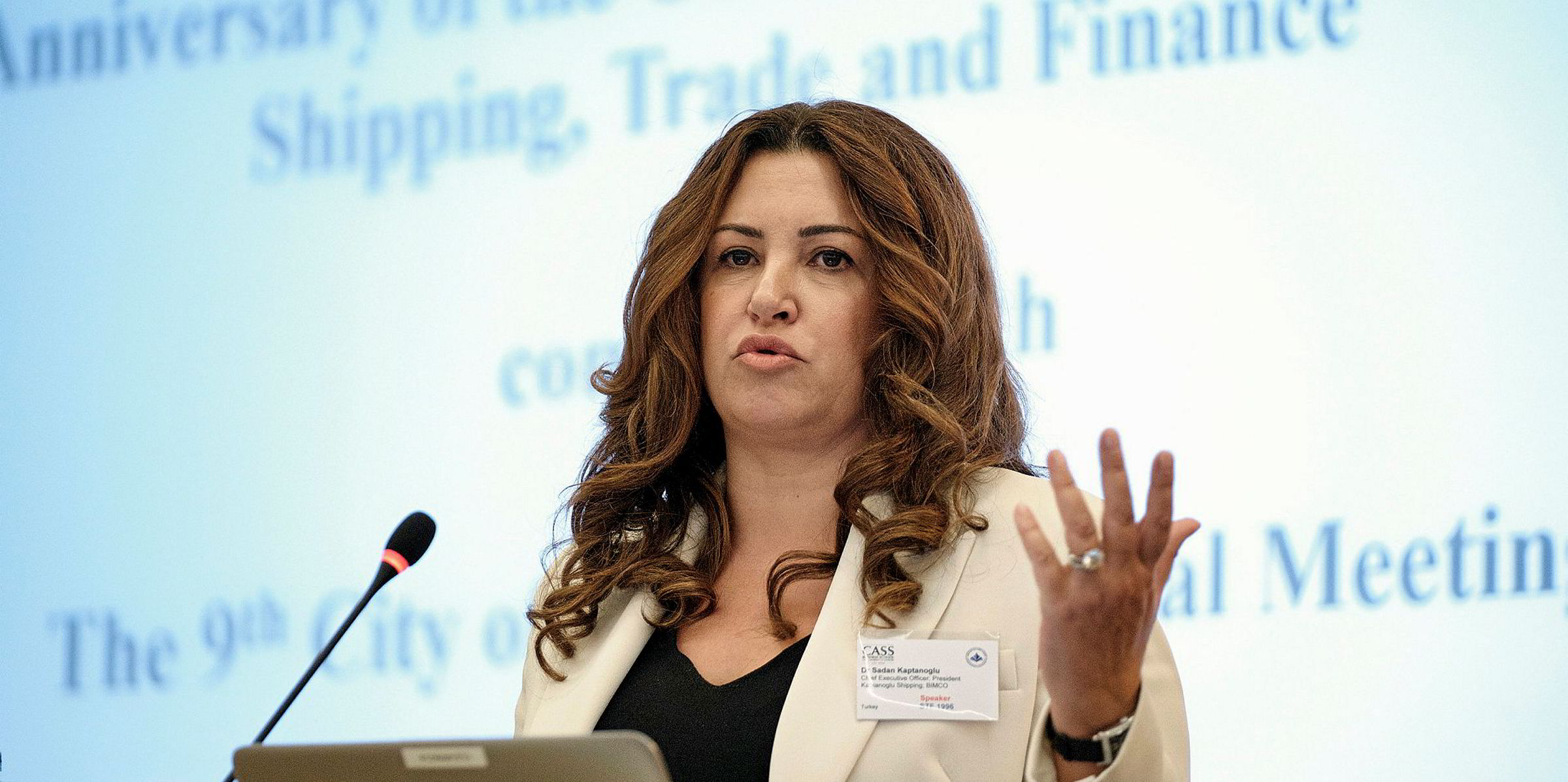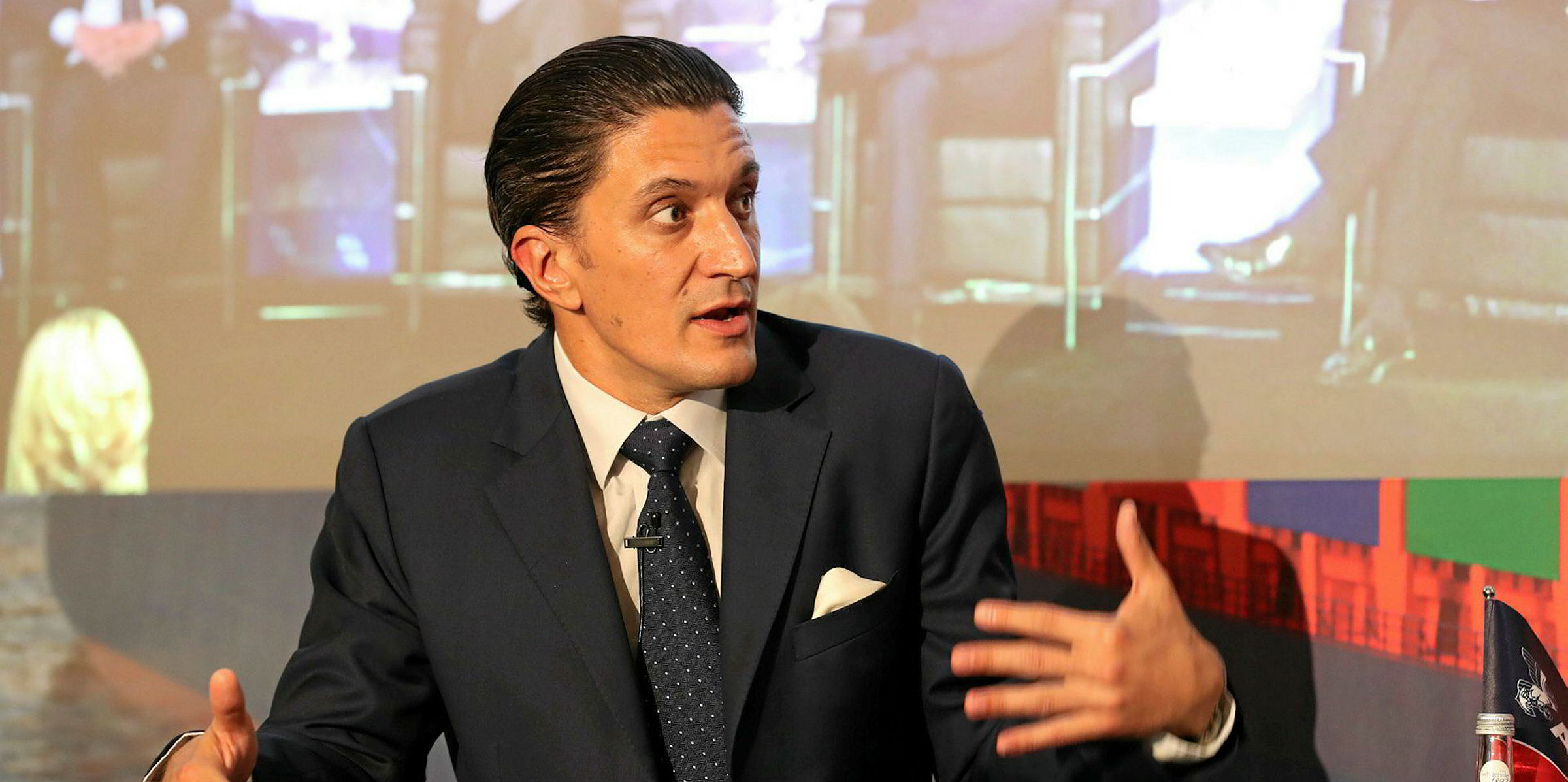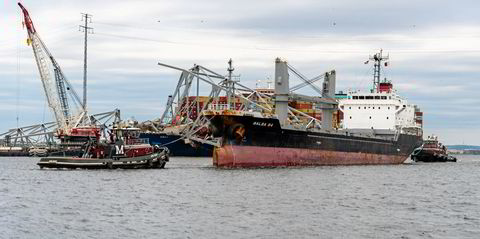The Covid-19 pandemic impact on shipping markets has created a “compelling” case to invest in secondhand dry bulk tonnage, John Michael Radziwill said.
The C Transport Maritime and GoodBulk chief executive’s comments came as speakers at the TradeWinds Digital Forum discussed business fortunes in the pandemic-hit shipping markets.
“I am not going to order a new ship and oversupply the market,” he said. “But the secondhand market is very compelling going forward.”
Radziwill pointed out the newbuilding orderbook has fallen to around 8% of the dry bulk trading fleet, which he said is usually taken as a good sign to buy secondhand tonnage.
The spread between newbuilding prices and low asset values of trading ships is another positive factor pointing toward the secondhand market, he said.
There is also little chance of a rush of newbuilding investment in the sector because there is so much uncertainty over environmental regulation.
“Now you’ll see more restraint than in the normal circumstances because we don’t know what the ship of the future will be,” he explained.
There are positive indications in the trading markets too. “The soft commodity movements are growing and growing particularly in agritrade because countries want to secure their food supplies,” he said.
MF Shipping Group chief executive Karin Orsel said that her company had seen demand sustained in the its key markets.
“The chemical and product tanker trade has always been good, and it's still a good market, we have not seen a drop in demand,” she said.
Similarly, construction work in Europe has sustained demand for cement carriers.
Her company has recently taken delivery of two general cargoship newbuildings. She said that the demand for conventional vessels will remain despite the move toward low-emission vessels.
“The big question today is if we had to make the decision again would we order the same vessels? I think we would order them because there is a shortage,” she said.
“Today we operate vessels for 20 to 25 years but I don’t think it will be the same in the future.”
The Kaptanoglu Group's Sadan Kaptanoglu said that environmental regulation would create work for her company's shipyards.
“Shipyards can build whatever you ask. But what shipyards need is the same as shipowners. We need solutions and those solutions are not going to be one but multiple,” she said.

Columbia Shipmanagement chief executive Mark O’Neil also said that he had seen an increase in all types of shipowners seeking cooperation since the onset of the pandemic.
He said that the crisis had shown that larger shipmanagement operations are able to cope better with the problems thrown up by the pandemic.
“What we have seen in the last six or seven months is an increase in large, medium and small operators coming to us for collaboration and assistance,” he said.
“The whole Covid-19 situation has shown that size does matter and, be it crew change or whatever, the problem it will be magnified for the smaller operator.”
He said there had been a growth in what he described second-party management involving much closer engagement between owners and shipmanagers.
“The industry is maturing and there is a greater willingness to work with managers,” he said.







